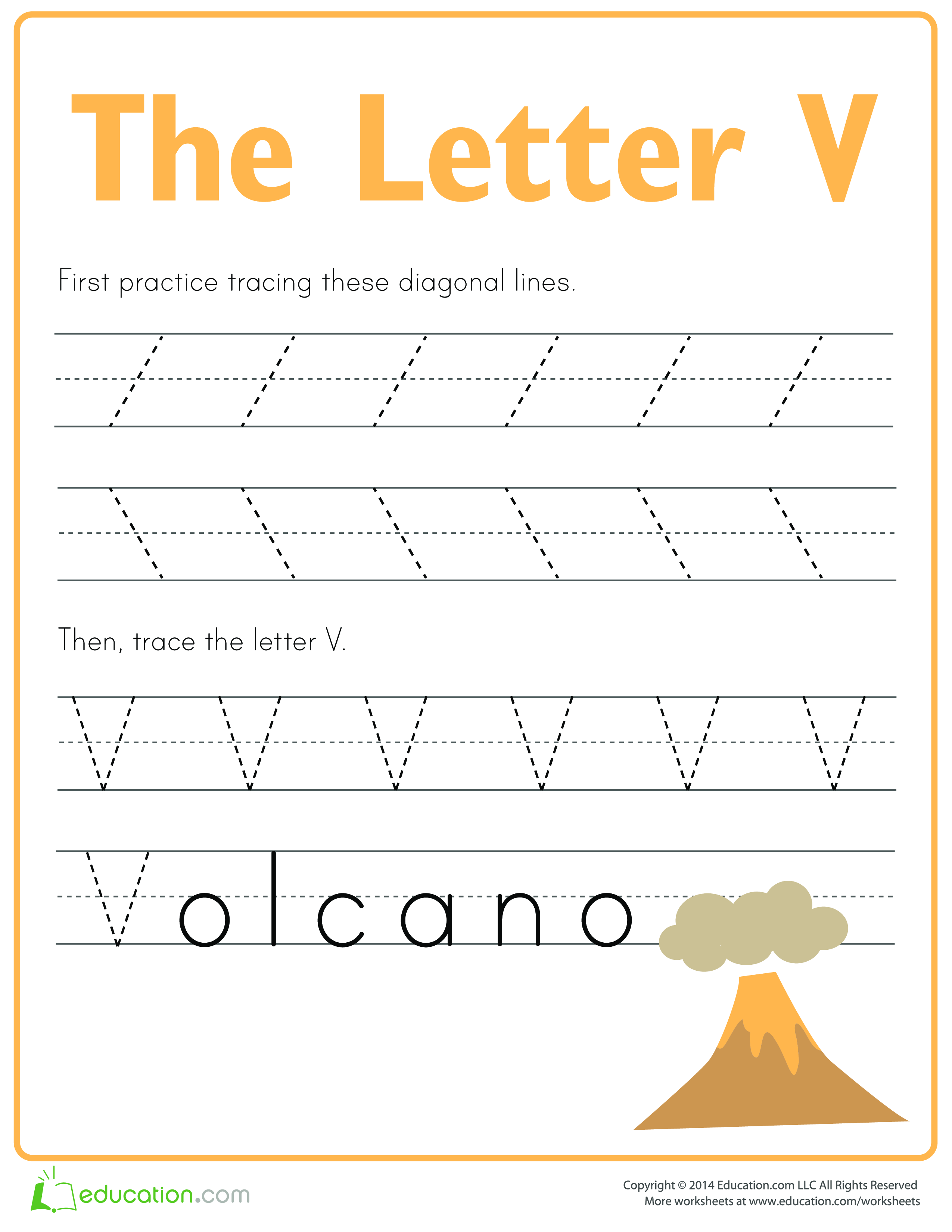Learn to write letter V
Save, fill-In The Blanks, Print, Done!

Download Learn to write letter V
Adobe Acrobat (.pdf)- This Document Has Been Certified by a Professional
- 100% customizable
- This is a digital download (278.27 kB)
- Language: English
- We recommend downloading this file onto your computer.
Is your child having trouble writing letters? Would you like to find worksheets on how to help them? Download our worksheets now to help children learn to write letters. Our worksheets are designed with engaging activities to help children learn phonics and letter formation. We also provide guidance and resources to help parents support their children's learning. Download this "Learn to write letter V" preschool educational template now!
A learn to write letters worksheet is an educational tool designed to help young children acquire the skills needed to write letters of the alphabet. These worksheets are typically used in preschools, kindergartens, or at home to teach children the fundamentals of handwriting.
Learning to write letters is a fundamental skill for children that holds significant importance for several reasons:
- Communication: Writing letters is a primary mode of written communication. It enables children to convey their thoughts, ideas, and feelings effectively, both in personal and academic contexts.
- Literacy Development: Writing letters helps develop literacy skills, including letter recognition, phonemic awareness, and vocabulary. These skills are foundational for reading and writing in more complex forms later in life.
- Fine Motor Skills: Writing involves intricate hand-eye coordination and fine motor skills. Practicing letter formation helps children refine their hand muscles and coordination, setting the stage for improved dexterity and handwriting.
- Cognitive Development: The process of learning to write letters involves cognitive processes such as problem-solving, memory, and sequencing. It encourages mental growth and development.
- Creativity and Expression: Writing allows children to express themselves creatively. They can use letters to write stories, poems, or simply jot down their thoughts and ideas. It provides an outlet for their creativity.
- Academic Success: Proficient letter writing is essential for academic success. Children need to write letters to complete assignments, take notes, and eventually, to write essays and reports.
- Life Skills: Beyond academia, knowing how to write letters is a valuable life skill. It's essential for writing personal letters, thank-you notes, job applications, and more. Teaching children this skill early sets them up for success in various life situations.
- Self-Expression: Writing letters allows children to express their thoughts, feelings, and experiences. It can be a therapeutic outlet, helping them process emotions and make sense of the world around them.
- Social Development: Letter writing can promote social development by encouraging communication with friends and family through written correspondence. It fosters connections and relationships.
- Technology Balance: In an increasingly digital world, teaching children to write letters by hand is essential to strike a balance between technology and traditional skills. It ensures they are not solely reliant on electronic devices for communication and expression.
In conclusion, learning to write letters is a crucial developmental milestone for children. It contributes to their cognitive, motor, and social development, enhances their literacy skills, and equips them with essential life skills for effective communication and success in various aspects of life.
Using this alphabet writing template guarantees your family a funny learning experience that stimulates the brain and memory of your child(ren) and yourself!
This template is provided by a preschool education website, and it's credited to this template.
DISCLAIMER
Nothing on this site shall be considered legal advice and no attorney-client relationship is established.
Leave a Reply. If you have any questions or remarks, feel free to post them below.
Related templates
Latest templates
Latest topics
- Google Docs Templates
How to create documents in Google Docs? We provide Google Docs compatible template and these are the reasons why it's useful to work with Google Docs... - IT Security Standards Kit
What are IT Security Standards? Check out our collection of this newly updated IT Security Kit Standard templates, including policies, controls, processes, checklists, procedures and other documents. - Letter Format
How to format a letter? Here is a brief overview of common letter formats and templates in USA and UK and get inspirited immediately! - Google Sheets Templates
How to work with Google Sheets templates? Where to download useful Google Sheets templates? Check out our samples here. - Influencer Marketing Templates
What makes a good influencer? Check out our effective and useful Influencer Marketing Templates here!
cheese

